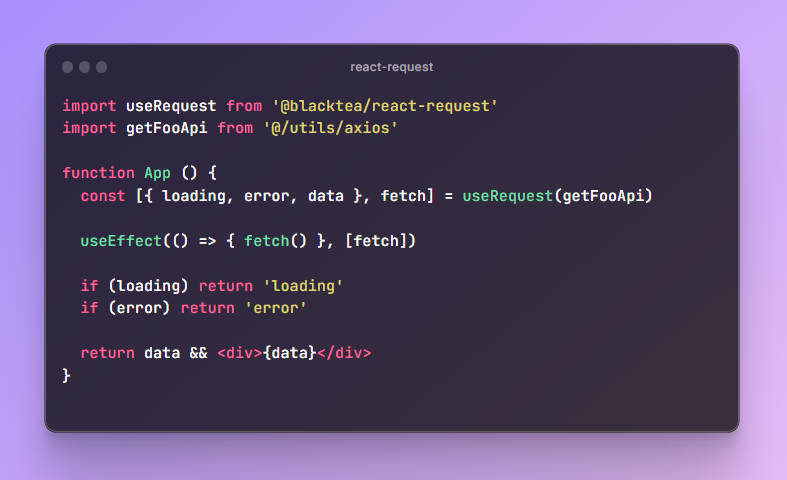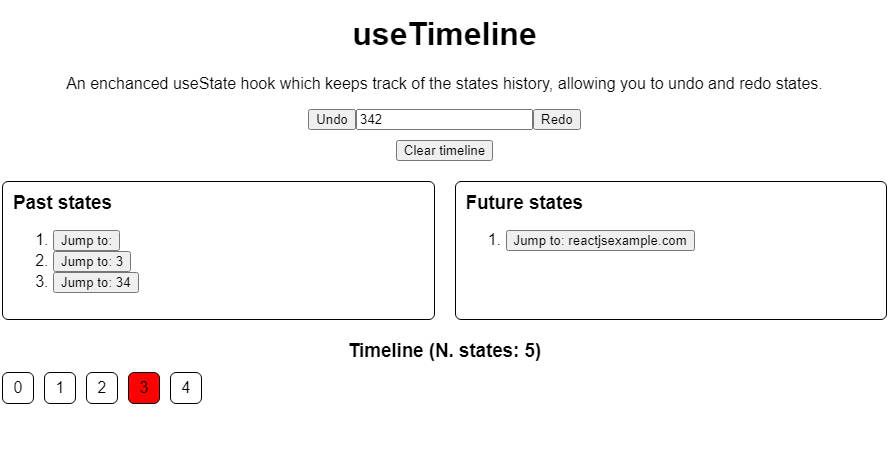rxjs-react-hooks
License: MIT
A small library for integrating not-in-the-render-cycle reactivity with React using RxJS.
APIs
useObservedValue
Gets values from any async/observable type (Observables, Promises, AsyncIterators, Iterables, et al), as handled safely by RxJS. The reference you pass is important!. Will automatically clean up if the passed reference changes.
Use with Observable:
import { useState, useMemo } from 'react';
import { timer, map } from 'rxjs';
import { useObservedValue } from 'rxjs-react-hooks';
// Numbers incrementing once a second, over time.
const numbers$ = timer(0, 1000);
export function App() {
const [userInput, setUserInput] = useState(2);
// It's recommended to use memoization to apply
// pipable operations to observables, this ensures you have
// the same reference unless something changes.
const dividedNumbers$ = useMemo(
() => numbers$.pipe(map(number => number / userInput)),
[numbers$, userInput]
);
// Get the values from the observable. If the observable reference
// changes, this will unsubscribe and subscribe to the new reference.
const result = useObservedValue(numbers$);
return (
<div>
<label>Divide by:</label>
<input
type="number"
value={userInput}
onChange={e => setUserInput(parseFloat(e.target.value))}
/>
<output>{result}</output>
</div>
);
}
Use with async iterables (async generators):
import { useMemo, useState } from 'react';
import { useObservedValue } from 'rxjs-react-hooks';
export function App() {
const [delay, setDelay] = useState(1000);
// An async iterable of incrementing numbers over time
const ticker = useMemo(
async function* () {
let n = 0;
while (true) {
await sleep(delay);
yield n;
}
},
[delay]
);
// "Subscribe" to the async iterable to get the values out.
// Again, the *instance* reference matters here. If it changes,
// This will "unsubscribe" and start over.
const tick = useObservedValue(ticker);
return (
<div>
<label htmlFor="delay">Delay</label>
<input
id="delay"
type="range"
min="100"
max="3000"
value={delay}
onChange={e => setDelay(parseInt(e.target.value))}
/>
<output>{tick}</output>
</div>
);
}
/**
* Returns a promise that fires after a specified delay
*/
function sleep(ms: number) {
return new Promise(res => setTimeout(res, ms));
}
useReactiveCallback
Creates a function and observable pair. Calling the function will cause the observable to emit. This observable cannot error or complete.
export function App() {
// Get a function and observable that we'll
// wire up to our input below.
const [handleChanges, changeEvents$] =
useReactiveCallback<React.ChangeEvent>();
// Get an observable of throttled values
const throttledInput$ = useMemo(
() => changeEvents$.pipe(throttleTime(1000)),
[changeEvents$]
);
// Get the throttled values has they arrive from our observable.
const throttledValue = useObservedValue(throttledInput$);
return (
<>
<input onChange={handleChanges} />
<output>{trottledValue}</output>
</>
);
}



